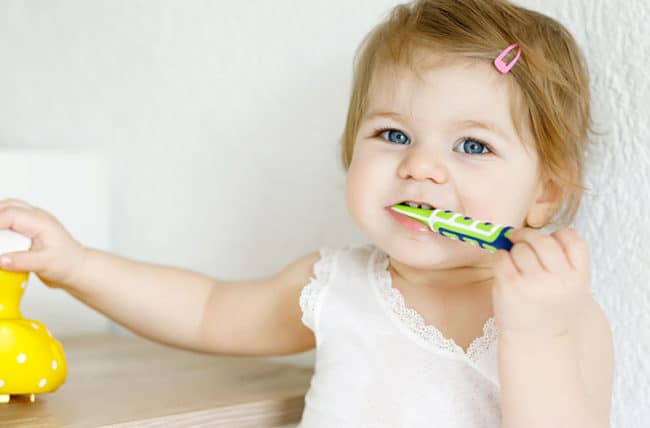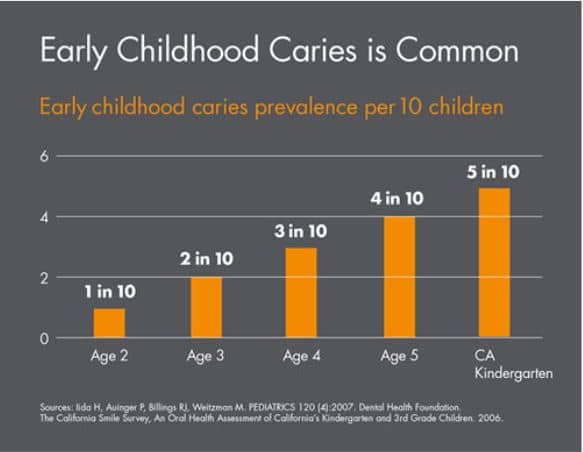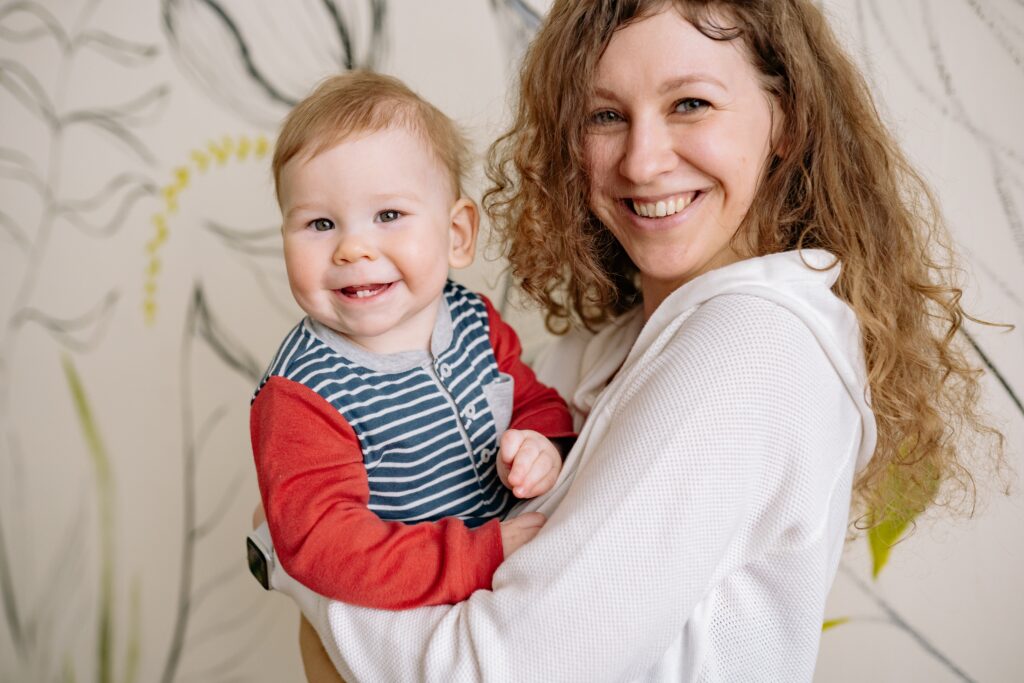When Should I Bring My Baby In For a Dental Visit?

You can take your child at a younger age, but experts recommend taking him or her within 6 months of the first tooth coming in (erupting), or by about 12 months at the latest. (Stanford Children’s Health)
Why So Early?
Tooth decay can begin as soon as your baby’s teeth come in. Decay that’s left untreated can lead to cavities that can cause pain and or infection. Sadly once decay sets in early childhood cavities (ECC) incidence rises dramatically over time, from 1 in 10 children at age 2, to 50 percent of children by age 5.

First Birthday, First Dental Visit
It’s recommended that babies should have their first dental visit with the dentist after their first tooth appears, but no later than their first birthday. The first visit is an infant wellness check up. We love helping babies have a pleasant first visit to help ensure they feel comfortable in a dental home. We’d prefer not to have their first visit be an emergency!

What To Expect At The First Visit
- Review child’s health history
- Do a complete oral exam to check on growth and development, oral hygiene, injuries, cavities or other problems.
- Assess your child’s risk for tooth decay
- Clean the teeth and review tips for infant brushing and flossing at home.
- Assess if your child needs fluoride or hydroxyapatite in their toothpaste
- Discuss teething, pacifier use, finger/thumb sucking, tongue posture, tongue position.
- Review diet and home care recommendation and set goals oral wellness.
How To Protect Your Child’s Teeth At Home
- Before teeth come in, clean gums with a clean, damp cloth. We recommend doing this during bath time.
- Start brushing with a small, soft-bristled toothbrush and a very small amount of toothpaste (the size of a grain of rice) when your child’s first tooth appears. Use a pea-sized dab of fluoridated toothpaste after 3 years of age. This is when the child is old enough to spit out the toothpaste after brushing.
- Prevent baby bottle tooth decay. Don’t give children a bottle of milk, juice, or sweetened liquid at bedtime or when put down to nap. Water only after brushing.
- Limit the time your child has a bottle. Your child should empty a bottle in 5 to 6 minutes or less.
- Help your child brush his or her own teeth until age 10 or 11 or when they have the motor skills to legibly write their names. Until then, let your child brush as they want but you will finish with two minutes of brushing and floss for them to ensure all teeth and surfaces are cleaned.
- Limit foods and treats that increase tooth decay. This includes hard or sticky candies, fruit leather, and sweetened drinks and juice. Offer fruit rather than juice. Fruit is always better than juice due to fiber and less dense sugar content. Increase fun vegetable and non carbohydrate snacks like avocado, steamed carrots, and yogurt.
- Remember we’re cultivating their microbiome with great hygiene and smart diet choices. We believe prevention is the best form of dental care.
- Schedule an infant wellness exam in Sunnyvale, CA with Dr. Jen.


Leave a Reply
You must be logged in to post a comment.